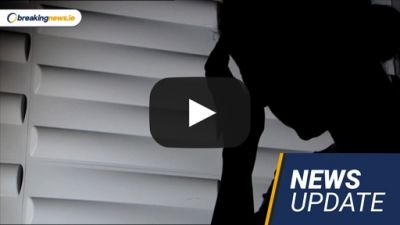Cork University Hospital has apologised for "shortcomings" and acknowledged "deficits of care" which resulted in the untimely death of a 57-year-old man.
Business development manager Don Fennelly, from Bishopstown, Co Cork, who was awaiting a third kidney transplant, was admitted to Cork University Hospital (CUH) on December 31st, 2017 with gastro intestinal bleeding.
It was claimed there was negligence in the investigation, diagnosis, treatment, management and care of Mr Fennelly and after a section of his colon was perforated during a procedure the next day, on January 1st,2018.
There was also, it was alleged, a delay in the adequate treatment of the abdominal sepsis which developed and Mr Fennelly, it was claimed, was deprived of the opportunity to recover from his condition. He died in CUH on March 2nd, 2018.
In a letter to Mr Fennelly’s wife, Colette and daughter, Megan which was read to the High Court, CUH extended the deepest sympathy of the hospital staff on Mr Fennelly’s "tragic and untimely loss".
Signed by the hospital interim chief executive, Dr Gerard O’Callaghan, the letter offered "heartfelt apologies for the shortcomings in the care provided and the distress suffered" by Mrs Fennelly and her family.
The letter added: "CUH would like to acknowledge the deficits of care which resulted in the untimely death of your husband and father Don. We recognise that this loss has had a profound and devastating effect on you and your family."
Settlement
The letter of apology was read out as Colette Fennelly settled a High Court action against the HSE over the death of her husband in 2018. The HSE admitted liability in the case two weeks ago.
The details of the settlement are confidential.
The Fennelly family counsel, Robert Fitzpatrick SC, instructed by Orla Kelly of Cantillons Solicitors, told the court that according to medical experts on their side that but for the delay in the diagnosis and treatment Mr Fennelly would have survived.
At issue in the case was the decision for conservative management and treatment of the colon perforation.
Counsel said Mrs Fennelly and her daughter were by her husband’s hospital bedside all the time and advocated for him in hospital and after his death.
"Their experience in hospital was particularly traumatic," Counsel added. The Fennellys, he said, are trying to come to terms with their loss.
Colette Fennelly, of Bishopstown, Co Cork, had sued the HSE over the care provided and the death of her husband at the hospital.
Mr Fennelly was admitted to CUH on December 3st1, 2017 with a history of lower gastrointestinal bleeding. The next day he had a surgical procedure when it is claimed his colon was perforated and he suffered a deterioration.
Mr Fennelly’s condition continued to deteriorate and by January 4th, 2018 it was claimed signs of generalised peritonitis were manifest.
CT scans later showed an intra abdominal abscess, but it was claimed no adequate steps were taken to treat it or to establish the source of infection.
Surgery
It was decided after a contrast study on February 12th, 2018, which confirmed a defect in the colon with a huge abscess in the abdomen that Mr Fennelly would have surgery.
Mr Fennelly, it was claimed, at this stage had complex abdominal sepsis for at least a month. During the surgery, it was claimed, he suffered an injury to the small intestine and he deteriorated, and even further afterwards, with multiple organ failure.
He was transferred to the hospital ICU where on March 2nd, 2018 he was pronounced dead.
It was further claimed that Mr Fennelly’s death was caused, or materially contributed to, by the failure to inform him of all the risks associated with conservative treatment for the colon perforation.

There was also, it was alleged, a delay of between 22-27 hours in the diagnosing of the colon perforation and the surgical assessment of it and a failure to consider adequately that a perforated organ is an immediately life-threatening condition.
There was, it was claimed, a failure in explaining management plans to the Fennellys that non-operative management was very unlikely to succeed and if it did fail, it would expose Mr Fennelly to higher risks of death or life-threatening complications than those of immediate surgery.
It was also claimed there was a failure to carry out a certain procedure which was a standard treatment for colon perforation, which, it was claimed, denied Mr Fennelly a probability of survival.
Approving the settlement, Mr Justice Paul Coffey extended his deepest sympathy to the Fennellys and said it was a sad and tragic case.







